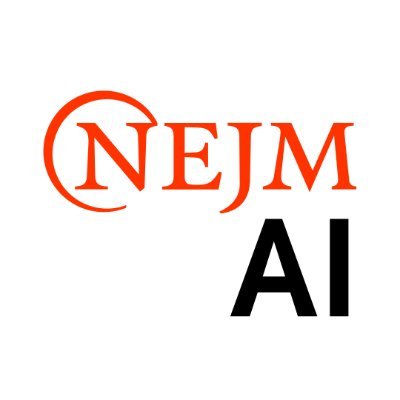

A new study from researchers at Providence, published in Nature NPJ Genomic Medicine, demonstrates how Whole Genome Sequencing (WGS) can transform health care by enabling earlier disease detection, tailored prevention strategies and more precise treatment decisions. As a pilot program for population sequencing within a large U.S. community health system, the Geno4ME study underscores the growing role of genomics in everyday medical care, particularly for communities who have historically lacked access.

New research recently published in the New EnglandJournal of Medicine begs the question: Can an AI-based model revolutionizeclinical research? In the paper titled TRIALSCOPE — AFramework for Clinical Trial Simulation from Real-World Data, Providence and Microsoft researchers propose an innovative framework dubbedTRIALSCOPE to automate the generation of Real World Evidence (RWE) from ElectronicMedical Record (EMR) data.
The model uses AI to organize unstructured and noisypatient data and then simulates clinical trials to estimate the effects oftreatments. It also tests how changes in criteria for who can participate inclinical trials could impact trial outcomes, giving researchers another tool toshape more effective trials for specific patient populations.
According to Dr. Bifulco and his colleagues, this modelcould revolutionize the way we conduct clinical trials and generate RWE. Thiswork shows that by automating the curation of EMR data and leveraging advancedAI tools, researchers can generate robust, reliable and cost effective RWE to helpidentify the most effective treatments for specific patient populations. Read more at NEJM.

New Providence research published in Nature-Precision Oncology finds that in head and neck cancer, researchers found that two specific immune responsepatterns—called Activation and Infiltration—can better predict who will benefit from immunotherapy. Patients whose tumors showed both patterns responded best to treatment and lived longer. These findings, confirmed in multiple patient groups, suggest using combined biomarkers is more effective than relying on a single one.

A wide variety of medical imaging tools (CT,MRI, pathology etc.) are used in routine medical care, and represent robust datasets for potential biomedical discovery using Artificial Intelligence (AI).A huge challenge is that each of these imaging tools produce highly complex images, and algorithms developed for one imaging modality typically are inaccurate when applied to another imaging type. With recent break throughs, researchers at Providence, Microsoft and the University of Washington have published a new all-in-one tool called BiomedParse that jointly conducts segmentation, detection, and feature recognition across nine different medical imaging modalities. This work paves the way for cutting-edge multimodal biomedical discovery, e.g., research that can be performed across large datasets regardless of imaging type.

Research from a team led by Brian Piening, PhD, Program Director for Providence Genomics that included colleagues from across Providence as well as collaborators at Illumina and Microsoft demonstrated that a majority (67%) of patients tested with the ProvSeq-Solid Tumor Comprehensive Genomic Profiling (CPG) test were candidates for guideline-recommended precision cancer therapy and those treated with these therapies showed significant improvements in overall survival rate versus chemotherapy. Read More
· Two-thirds of patients with advanced cancer whose biopsies were tested using an in-house comprehensive genomic profiling assay were found to be candidates for precision therapies. Press Release.
· Brian Piening named to new Genomics role
· Follow Providence Genomics research

In less than a year, Prevention4ME has identified more than 2600 patients at high risk for cancer who are now being screened differently or receiving NCCN guideline-recommended genetic testing Prevention4ME has been piloted at multiple sites across the system and is continually expanding system-wide. The program includes a novel virtual screening tool, patient and provider support, education, and integrated test ordering/resulting workflow.
“The sooner we can catch it, the easier it is for treatment. It can be as simple as an excision as opposed to chemo. When people go through this program and are determined to be at a high risk, whether they are eligible for genetic testing or not, or just at an elevated risk for breast cancer, we can get them in different screenings like abreast MRI that can help to catch cancer sooner." - B Kellie Kraft, Breast Imaging NurseNavigator – Kadlec Advanced Breast Care
· News coverage: Kadlec launches Prevention4ME to detect breast cancer earlier
· Read the Providence blog story
· AboutPrevention4ME (SharePoint resources)


This research highlights a new artificial intelligence model that Providence, Microsoft, and the University of Washington used to diagnose cancer. The open-access model called Prov-GigaPath was developed and used to analyze more than a billion tissue sample images from 30,000 patients. While much more remains to be done, the AI-assisted approach to digital pathology opens new possibilities to advance patient care and accelerate clinical discovery.
The effort to develop Prov-GigaPath used Microsoft-developed AI tools to identify patterns in 1.3 billion pathology image tiles obtained from 171,189 digital whole-slides provided by Providence. The researchers say this was the largest pre-training effort to date with whole-slide modeling — drawing upon a database five to 10 times larger than other datasets such as the The Cancer Genome Atlas
This study includes authors from Providence Genomics, Microsoft, the University of Washington and other organizations.
Read more:
Nature Paper: A whole-slide foundation model for digital pathology from real-world data
Press Release: With the potential to transform cancer diagnostics, Providence contributes to innovative AI model
Media: WindowsReport; InOurCircle/Providence

This pig-to-human study utilized genomics technology to map out when rejection events happen. This is helping scientists to better understand the detailed molecular landscape following xenotransplantation to enable earlier interventions.
Xenotransplantation—the grating or transplanting of organs or tissues between members of different species, is not without controversy, however, the detailed analyses show that two people who received heart transplants from other species had very different reactions. These findings give us new insights about how the body’s molecules and immune system respond right after such a transplant.
This study includes authors from Providence Genomics, the Providence Molecular Genomics Lab, and Earle A. Chiles Research Institute.
Read more:
Paper: Integrative multi-omics profiling in human decedents receiving pig heart xenografts
Abstract (SABCS): Mapping inter- and intra-tumor heterogeneity in Ductal Carcinoma in situ and invasive breast cancer using integrative multi-omic profiling (May 1, 2024)

This innovative Artificial Intelligence (AI) technology involves the digitization of traditional glass slides which enables pathologists to access, analyze, and share high-resolution whole-slide images (WSI) of tissue specimens in a digital format.
The research demonstrates that AI-based immune tests like Immunoscore (IS) and Immunoscore-Immune Checkpoint (IS-IC) are powerful for improving how we diagnose, predict, and treat cancer by analyzing the immune environment of tumors. When digital IS assessments were done on slides from colon cancer patients, they were more consistent and reliable than those done by expert pathologists. IS also works better than traditional staging methods, helping to make cancer treatments more effective and improving patient care.

This study includes authors from Providence Genomics in collaboration with Providence Swedish Cancer Institute.

Pharmacogenomics (PGx) isbecoming a cornerstone of precision medicine due to variations in drug safetyand efficacy attributed to an individual’s genetic profile.
Providence Genomics piloted PGxusing genome sequencing for 2,111 participants in its Geno4ME program.
Participants and theirproviders received a PGx report and pharmacist consultation, and those withactionable results received personalized medication action plans.
Findings were presented at the2023 American College of Medical Genetics and Genomics Annual Clinical GeneticsMeeting.

An estimated 90 percent of individuals with inherited cancer risk do not know they are at risk.
Providence is evaluating new models for identifying patients eligible for hereditary cancer risk assessment and genetic testing.
Testing of an AI chatbot to identify eligible patients and improve access to genetic testing and counseling at seven CA sites led to a 10-fold increase in genetic testing compared to paper screenings.
Providence continues expanding the initiative at sites in Southern California and Washington State.
Learn about our Prevention4ME program

Genomic medicine offers significant promise for more effective prevention and treatment for those at higher risk of diseases such as cancer.
As health care systems launch new genetic screening programs, understanding the patient’s experience is vital to shaping strategies that overcome barriers to participation and follow-up care.
Research conducted through aProvidence early detection and prevention pilot program highlighted a need for clear communication from trusted health care providers about the benefits and next steps, and the importance of providing information about treatment options and follow-up care.

Researchers at Providence,Microsoft, and the University of Washington partner to fight cancer using AI.The project, called Prov-GigaPath is an open-access AI model now being used inclinical applications.
Prov-GigaPath is the largest pre-training effort to date, using AI tools to identify patterns in 1.3 billion pathology image tiles obtained from 171,189 digital whole-slides provided byProvidence.
This AI-assisted approach to digital pathology opens new possibilities to advance patient care and clinical discovery.
Read the News Release

Providence Genomics and EACRI researchers conducted a multi-year study of the impact of removing testing barriers to comprehensive genomic profiling (CGP) for patients with advanced cancers.
The study’s motivation stemmed from inadequacies in the delivery of consistent, timely, and comprehensive genomic testing for cancer patients.
The team’s findings showed that patients in the study who received CGP-guided precision therapy had significantly higher survival outcomes.